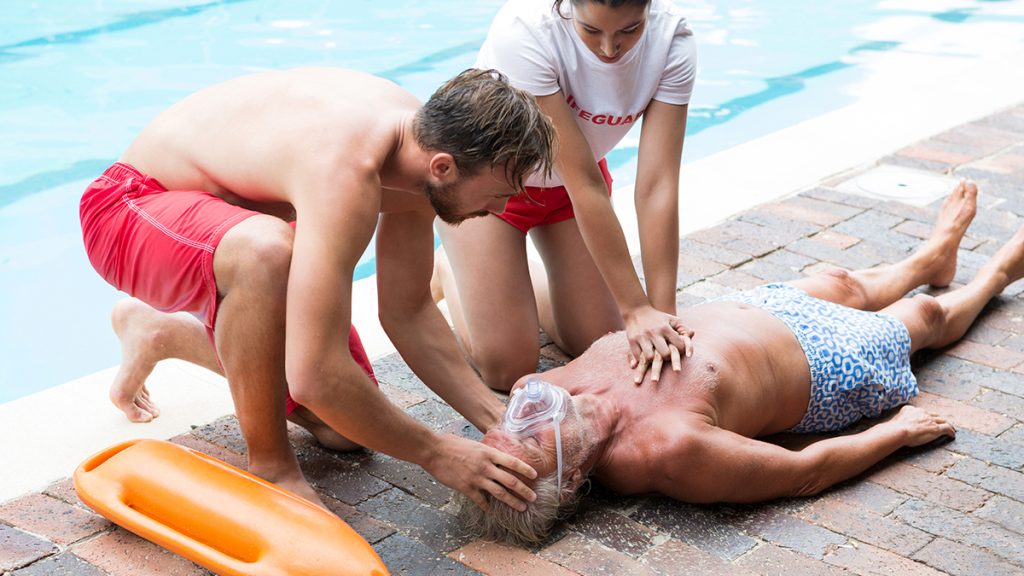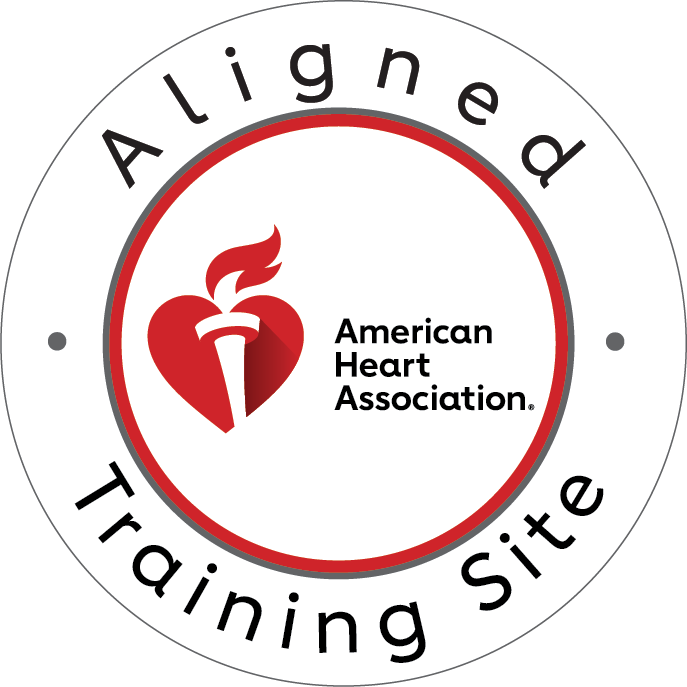Every year, thousands of lives hang in the balance at pools, beaches, and waterparks across the nation. In these critical moments, the difference between life and death often comes down to one crucial factor: a lifeguard’s ability to perform CPR.

The Thin Red Line: Lifeguards as First Responders
Imagine a sun-soaked afternoon at your local pool. Children laugh, families picnic and the water glistens invitingly. Suddenly, a cry pierces the air. A child has slipped beneath the surface, unnoticed for precious seconds. In this heart-stopping moment, the lifeguard’s training kicks in. They dive, retrieve the child, and begin CPR. These golden minutes determine whether a family will be forever changed or if a close call becomes a story of heroism.
Lifeguards are more than just watchful eyes; they are the first line of defense against aquatic emergencies. Their role demands a unique blend of vigilance, quick thinking, and life-saving skills. At the core of these skills lies CPR – Cardiopulmonary Resuscitation.
The Power of CPR: A Lifeguard’s Most Vital Skill
Bridging the Gap Between Crisis and Care
When someone’s heart stops beating, every second counts. CPR serves as a crucial bridge, maintaining blood flow to vital organs until advanced medical help arrives. For lifeguards, mastering CPR techniques is non-negotiable. Here’s why:
- Speed is Everything: In cardiac emergencies, brain damage can begin within 4-6 minutes. Lifeguards are often the first on the scene, making their immediate action critical.
- Versatility in Emergencies: CPR isn’t just for drowning victims. Heart attacks, electric shocks, and other incidents can occur in aquatic settings, requiring immediate intervention.
- Confidence Under Pressure: Proper training instills the confidence needed to act decisively in high-stress situations.
The Ripple Effect of Preparedness
A lifeguard trained in CPR becomes a beacon of safety, influencing the entire aquatic environment:
- Peace of Mind for Patrons: Knowing that trained professionals are on duty enhances the enjoyment and relaxation of all visitors.
- Community Safety Net: Lifeguards often become unofficial health and safety advisors, sharing knowledge that ripples through the community.
- Inspiring Future Lifesavers: Young people witnessing the importance of these skills may be inspired to learn CPR themselves.
Beyond the Basics: The Evolving Landscape of Lifeguard CPR Training
Adapting to New Challenges
The field of emergency response is ever-evolving, and lifeguard training must keep pace. Modern CPR training for lifeguards goes beyond the fundamental chest compressions and rescue breaths:
- AED Integration: Many facilities now equip lifeguards with Automated External Defibrillators (AEDs), requiring additional training.
- Specialized Techniques: Training now often includes modified approaches for suspected spinal injuries or unique aquatic environments.
- Psychological Preparation: Modern courses address the mental toll of emergencies, teaching coping strategies and stress management.
Technology and Training
Advancements in technology are revolutionizing how lifeguards learn and maintain their CPR skills:
- Virtual Reality Simulations: Allow trainees to experience high-stress scenarios in a controlled environment.
- Real-time Feedback Devices: Provide instant data on compression depth and rate during practice.
- Mobile Apps: Offer quick-reference guides and refresher courses at lifeguards’ fingertips.
The Human Element: Why CPR Training Transforms Lifeguards
From Skills to Instincts
Effective CPR training does more than impart knowledge; it fundamentally changes how lifeguards perceive their role:
- Heightened Awareness: Trained lifeguards develop an almost sixth sense of potential dangers.
- Team Synergy: CPR often requires coordinated efforts, fostering a spirit of teamwork among staff.
- Personal Growth: The responsibility of holding lives in their hands matures lifeguards, often well beyond their years.
The Call to Excellence: Ensuring All Lifeguards Are CPR-Ready
A Shared Responsibility
The task of ensuring all lifeguards are proficient in CPR is a shared one:
- Facility Managers: Must prioritize regular training and create a culture of safety.
- Governing Bodies: Need to maintain rigorous standards and update protocols based on the latest research.
- Lifeguards Themselves: Should commit to continuous learning and skill refinement.
The Role of Quality Training Programs
Not all CPR courses are created equal. The best programs offer:
- Hands-on Practice: Ample time with mannequins to perfect technique.
- Scenario-based Learning: Real-world simulations that test decision-making skills.
- Ongoing Support: Resources for skill maintenance between recertifications.
Empowering the Guardians of Aquatic Safety
As we’ve explored the critical importance of CPR training for lifeguards, one thing becomes abundantly clear: this skill is not just a job requirement – it’s a solemn responsibility to the community. Lifeguards stand as silent sentinels, ready to spring into action at a moment’s notice. Their ability to perform CPR effectively can mean the difference between tragedy and triumph.
For those in the Cincinnati area looking to join the ranks of these everyday heroes or for current lifeguards seeking to sharpen their skills, there’s no better time to act. CPR Cincinnati, an American Heart Association training site, offers top-tier CPR certification courses designed to equip you with the knowledge, confidence, and hands-on experience needed to save lives.
Don’t wait for an emergency to wish you were better prepared. Take the first step towards becoming a true guardian of aquatic safety. Whether you’re seeking CPR certification in Cincinnati or specifically AHA CPR certification, CPR Cincinnati has the courses you need. Their stress-free, hands-on classes ensure you’ll be ready to face any challenge that comes your way.
Remember, in the world of water safety, knowledge isn’t just power – it’s the power to save lives. Reach out to CPR Cincinnati today and become the lifeguard you’d want watching over your loved ones. Your community needs you, and the skills you learn could make all the difference when every second counts.




